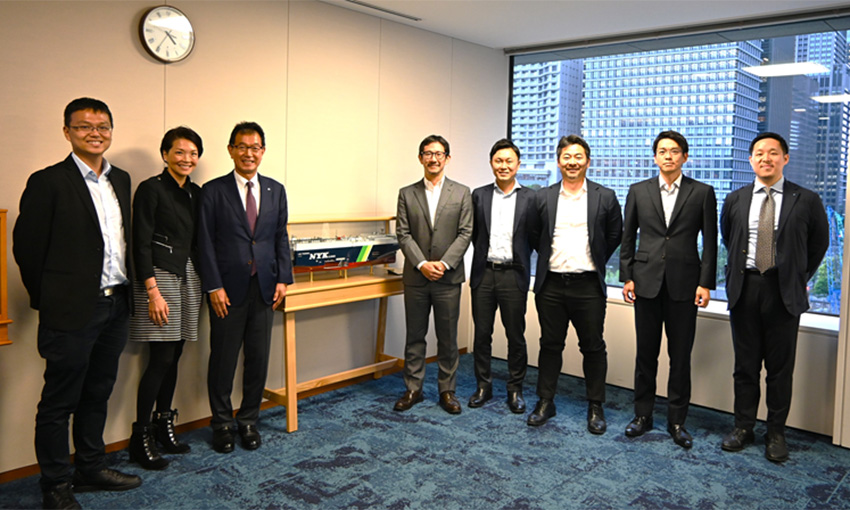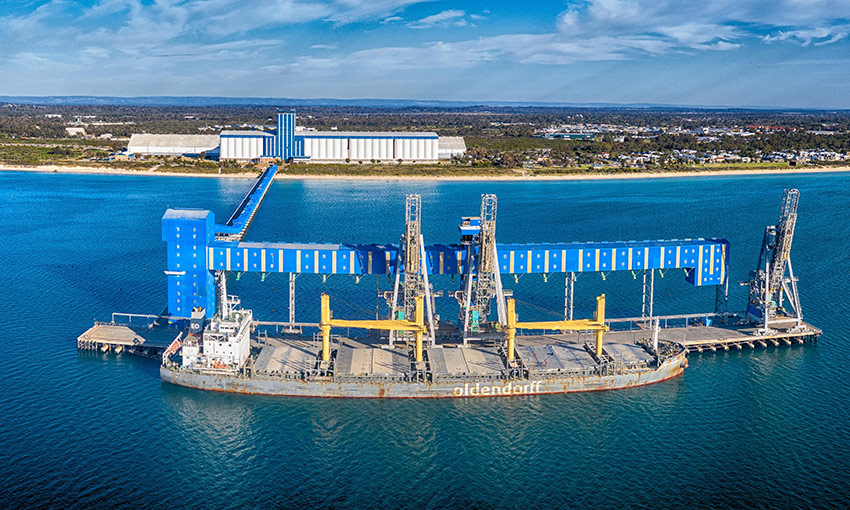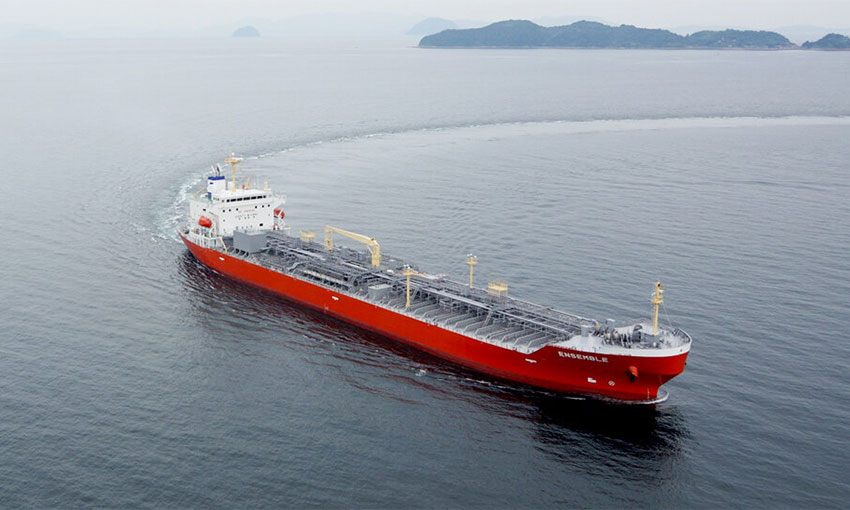NIPPON Yusen Kabushiki Kaisha (NYK) line has begun a long-term test run on the safety and stable procurement of using biofuel onboard a very large crude oil (VLCC) tanker.
The Tenjun, a 330-metre LOA tanker built in 2008, received an initial supply of biofuel in Singapore, and will spend approximately three months testing the fuel in an effort to comprehensively verify its safety and stability for long term use.
The test is part of NYK’s efforts to reduce greenhouse gas emissions and create an eco-friendly transport service, particularly through the trial and continued use of alternative fuels to achieve decarbonisation.
Biofuels can be refined by a process that uses vegetable oils known as methyl esterification, and as a renewable energy source are considered an alternative to fossil fuels, such as petroleum-derived heavy oil and light oil.
Although biofuels emit carbon dioxide (CO2) during combustion, plants absorb the CO2 and reproduce biomass, and so CO2 emissions during direct combustion are considered to be virtually zero.
On 9 May NYK announced a collaborative project with the Global Center for Marine Decarbonization (GCMD) aimed at engine and equipment performance when using biofuels, as well as evaluating the total cost and identifying potential challenges.
Moreover, on 14 May the shipping line also unveiled plans to develop and construct the worlds first biomass-fuelled ship, and a memorandum of understanding was signed between NYK, Tsuneishi Shipbuilding Co., and British renewable energy business Drax Group.
Shinichi Yanagisawa, Executive Officer of NYK Line, said “This initiative is part of NYK’s long-term target of net-zero emissions of greenhouse gas by 2050 for the NYK Group’s oceangoing businesses”.
In the medium term, NYK announced in November 2023 its goal to reduce NYK groups greenhouse emissions by 45% from the fiscal 2021 level by fiscal 2030.
NYK is also transporting alternative fuel to support decarbonisation in the aviation industry; on 25 May NYK Bulkship commenced its first shipment of sustainable aviation fuel.
The shipment of SAF left Singapore on an MR-type product tanker and will be unloaded at the port of Los Angeles and San Francisco and delivered to the airports in the region.





